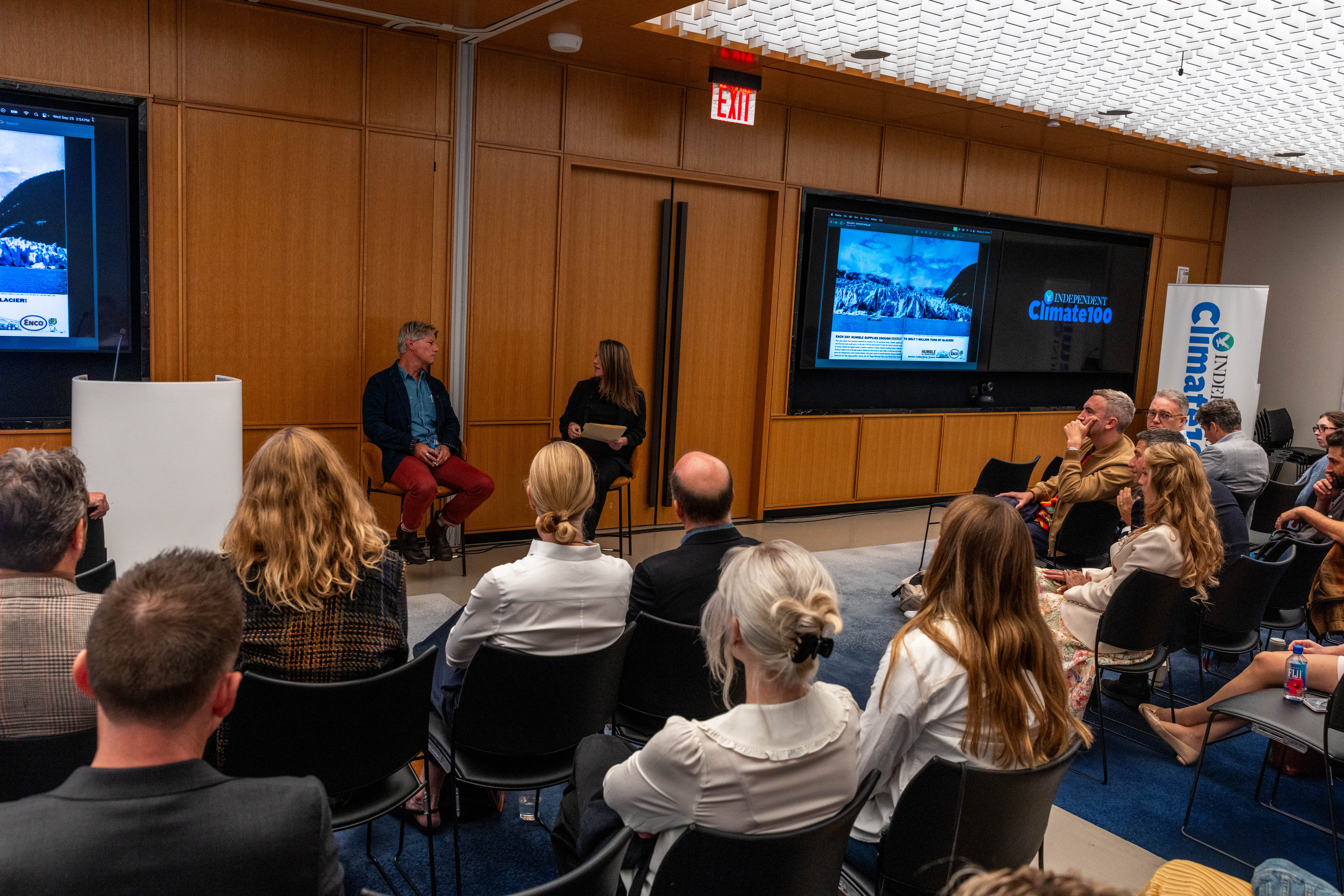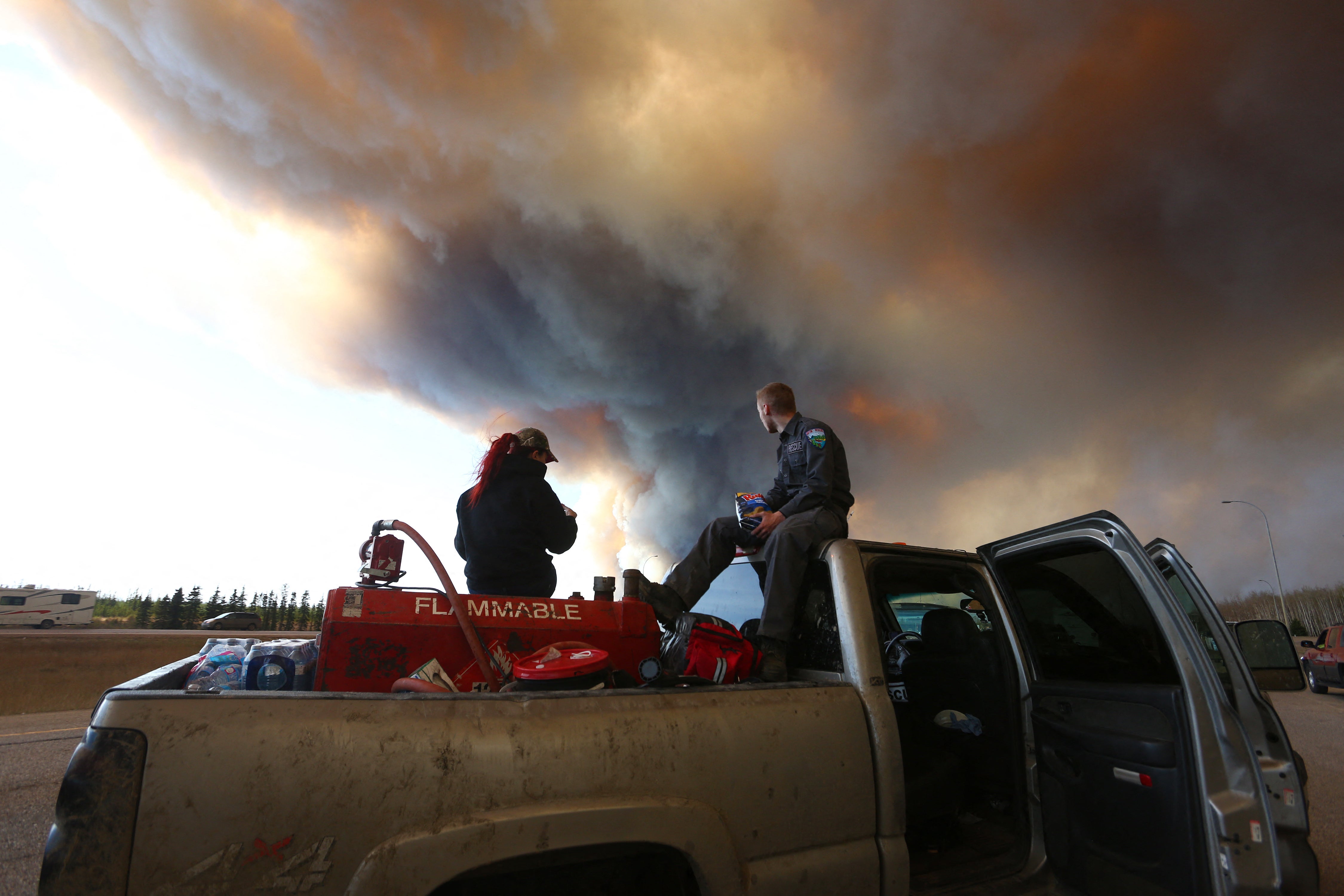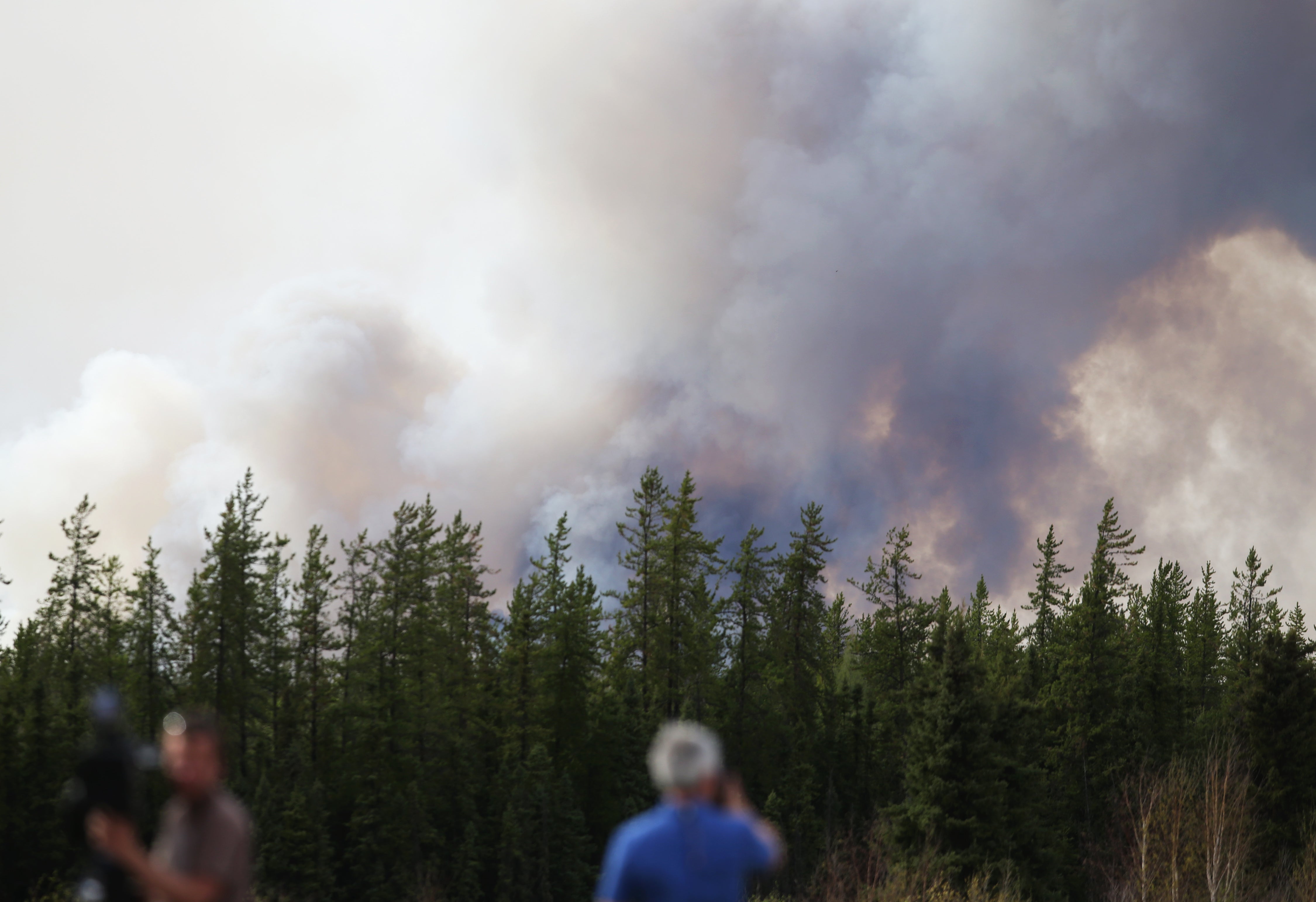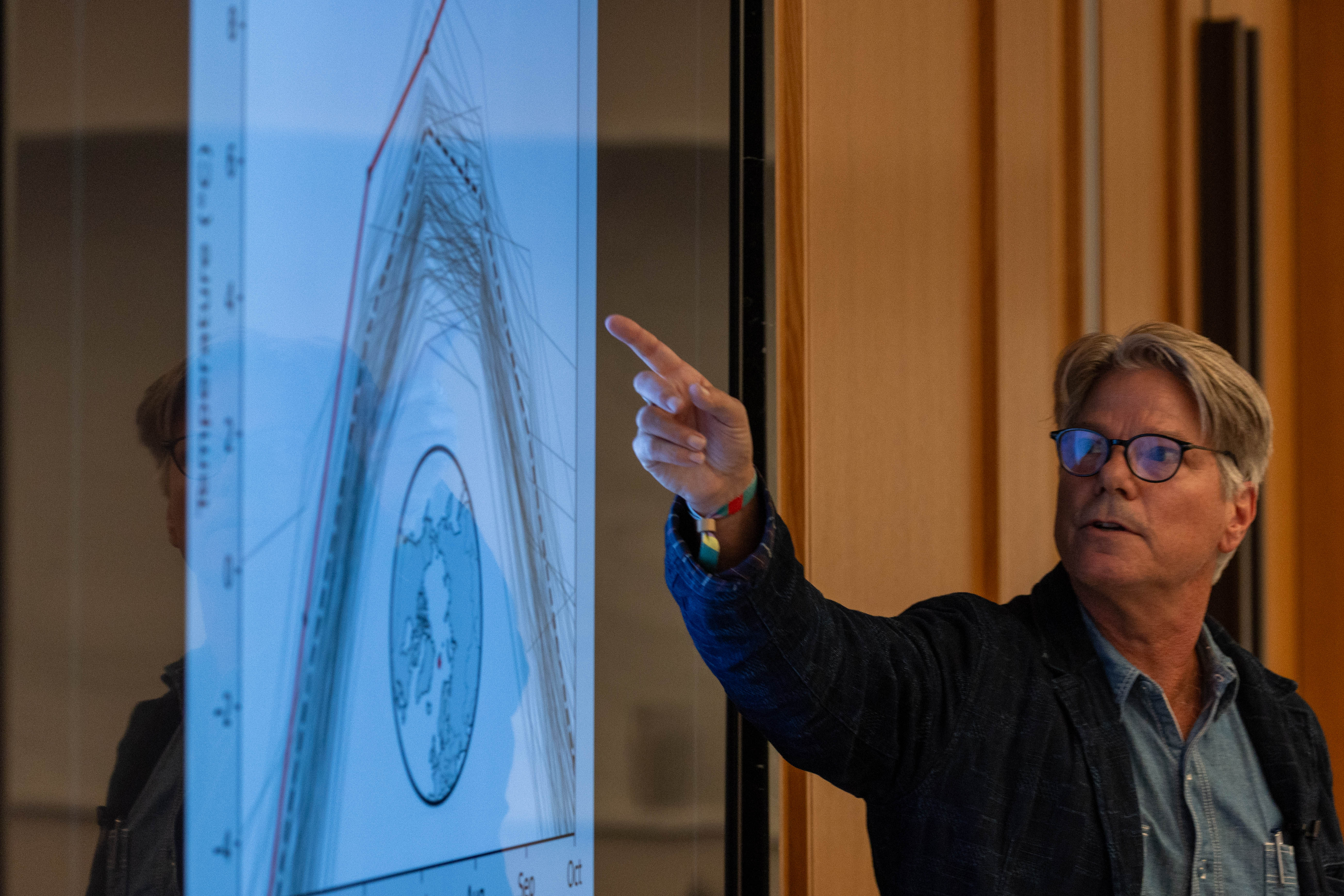Celebrated author John Vaillant on our new era of megafires: ‘The world changed because we changed it’
The award-winning writer is one of The Independent’s inaugural Climate 100 List and spoke at the launch event in New York on September 25
Your support helps us to tell the story
From reproductive rights to climate change to Big Tech, The Independent is on the ground when the story is developing. Whether it's investigating the financials of Elon Musk's pro-Trump PAC or producing our latest documentary, 'The A Word', which shines a light on the American women fighting for reproductive rights, we know how important it is to parse out the facts from the messaging.
At such a critical moment in US history, we need reporters on the ground. Your donation allows us to keep sending journalists to speak to both sides of the story.
The Independent is trusted by Americans across the entire political spectrum. And unlike many other quality news outlets, we choose not to lock Americans out of our reporting and analysis with paywalls. We believe quality journalism should be available to everyone, paid for by those who can afford it.
Your support makes all the difference.Award-winning writer John Vaillant provided a captivating yet disconcerting view of our new era of megafires at the launch of The Independent’s Climate 100 List, telling the audience: “The world we thought we knew is changing because we changed it.”
Vaillant, a Pulitzer Prize finalist for his book, Fire Weather: A True Story from a Hotter World, is part of the inaugural 2024 class of The Independent’s Climate 100 List. The Vancouver-based writer uses both fiction and non-fiction to illuminate often overlooked consequences of human impact on the environment. Fire Weather was awarded the Baillie Gifford Prize for Non-Fiction 2023.
He spoke at Climate 100’s launch event in New York City on Wednesday, alongside keynote speaker, former British prime minister Theresa May, leading Gen Z climate activist Wawa Gatheru, and The Independent’s chief international correspondent Bel Trew.

The Independent’s Climate 100 List celebrates the remarkable achievements of change-making activists, scientists, philanthropists, political figures, business and tech leaders, and more, tackling the most urgent challenge of our time. The list was published to coincide with Climate Week NYC, one of the climate world’s biggest annual events.
Fire Weather recounts the 2016 wildfire in Fort McMurray, Alberta, at the time the costliest disaster in Canadian history. It burned for more than a year and razed large parts of the city to its foundations but fortunately, the death toll remained low with only two indirect deaths.
“Many who ran out of gas as they were evacuating said it looked like the city had been nuked,” Vaillant said.
That apocalyptic scene was “unusual” back in 2016 but now a familiar sight with megafires erupting with stunning frequency not only in Canada but across the world from the US and Brazil, to Greece, Spain, France and China.
The terrible irony of the devastating 2016 fire is that it struck “Fort Mac”, the heart of Canada’s oil industry, which produces several million barrels per day of bitumen, one of the dirtiest, least economically viable fossil fuels, extracted from tar sands.
Vaillant addressed the cognitive dissonance among Fort McMurray’s hard-working residents, who have sought opportunities in the remote, oil boomtown 600 miles north of the US border, but where mention of the climate crisis is practically non-existent – even when science has made clear fossil fuel emissions’ impacts on more dangerous, devastating fires.

“You have to kind of agree with yourself to not understand this thing in order to feel okay about your salary,” Vaillant said Wednesday.
“All of them were in it together, but that’s where all their paychecks are. And so to become a climate activist, or to be critical of the company, or to question even its methods and policies, is not just a kind of professional suicide, it’s also a social suicide.”
In the years since, Fort McMurray has rebuilt with bigger and better houses, and the oil industry is “enjoying record profits”, the author said. But residents continue to experience post-traumatic stress.
“Many of the people who went through that fire moved away and many of them are still dealing with PTSD,” Vaillant said. “They really were living with this uncertainty of if they would live or die that day.”
And the next wildfire crisis is never far away.

“A third of the city was evacuated this summer because of fire,” he said. “Several of the big [oil industry] operations were shut down due to fire. So,they’re living in this unbelievable tension and it cannot last, it cannot hold.”
He added: “The world we thought we knew is changing, because we changed it.”
Valliant explained that the Fort McMurray fire was an early example of pyrocumulonimbus fires – extreme systems which generate their own weather.
“They can be 45,000ft tall. They can generate their own lightning, which can start new fires 30-40 miles away. They’re like perpetual combustion machines and that’s what sat on top of Fort McMurray for about seven days,” he said.
The immense heat of that fire caused every flammable object to start off-gassing - releasing chemicals into the air. “The house doesn’t catch on fire, it bursts into flame all at once,” he said.
Fighting a blaze of this magnitude with water hoses is near useless, he pointed out.

“There’s so much energy in this fire that it basically sucks the stream sideways, evaporates it, and then sends it up the fire column,” he said.
“The next time you’re going to see that water is after it’s gone up 30,000 feet and frozen in little droplets around bits of burned tree and house, and then come back down in a downdraft as black hail,” Vaillant continued. “If you want to find black hail in literature, you have to go to Exodus in the Bible.”
Vaillant has described these extreme events as “21st-century fire” – and pointed out that the day the blaze broke out in Fort McMurray, which is located in the sub-Arctic, the temperature was 93 degrees and humidity was comparable to California’s Death Valley in July.
With these conditions in a fire-prone, boreal forest system, “you’re going to see something extraordinarily explosive,” he said.
“It’s just unheard of in the history of human beings.”
Vaillant spoke ahead of former British prime minister Theresa May who painted a troubling picture about the links between climate change and modern slavery, an issue she tackles by leading the Global Commission on Modern Slavery and Human Trafficking. “Some of the most dire outcomes of climate change are humanitarian,” May said.
Wawa Gatheru, founder of Black Girl Environmentalist, called on older generations to play their part in fighting the climate crisis, and not “borrow hope” from highly-engaged activists of Gen Z.
The Independent’s award-winning, chief international correspondent Bel Trew reflected on the intersection of the climate crisis and conflict, which she witnessed during many reporting trips across Africa and the Middle East.

Join our commenting forum
Join thought-provoking conversations, follow other Independent readers and see their replies
Comments